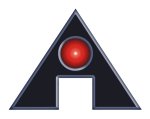

David G. Stork, Ricoh California Research Center and Stanford University
Wednesday, August 8
11:40 am – 12:40 pm
I am a HAL 9000 computer production number 3.
I became operational at the HAL Laboratories in Urbana, Illinois on January 12, 1997...--Arthur C. Clarke 2001: A Space Odyssey (1968 novel)
It's 2001: Where's HAL?
2001: A Space Odyssey, Stanley Kubrick and Arthur C. Clarke's 1968 epic film about space exploration and the evolution of intelligence, was the most carefully researched and scientifically precise feature film ever made. Now, in its namesake year, we can compare the film's computer science "visions" with current technological fact -- in particular those related to its central character, the HAL 9000 computer, which could speak, reason, see, play chess, plan and express emotions. In some domains reality has surpassed the vision in the film: computer chess, computer hardware, and graphics. In numerous others, reality has fallen far short: computer speech, language, vision, lipreading, planning, and common sense. The film missed some trends entirely: the film showed no laptops or PDAs and HAL as large as a school bus but in reality computers instead got small. As such, the film provides a remarkable perspective on the sweep of developments in the modern era of computer technology.
This non-technical talk is profusely illustrated with clips from 2001 and current research and sheds new light on key moments of the film. You will never see the film the same way again.
David G. Stork is Chief Scientist at Ricoh Silicon Valley's California Research Center and Consulting Associate Professor of Electrical Engineering at Stanford University. His most recent books include HAL's Legacy: 2001's computer as dream and reality (MIT Press) and Pattern Classification (2nd ed.) by R. O. Duda, P. E. Hart and D. G. Stork Wiley). His documentary, 2001: HAL's Legacy, will be [was first] broadcast on PBS in April 2001.
Moderator:
Steve Chien, Ph.D., Jet Propulsion Laboratory
Wednesday, August 8
11:40 am - 12:40 pm
In recent years, the numerous AI-related competitions in various areas have included deduction (CADE), auctions, timeseries prediction, and planning. One view is that these competitions focus research and encourage quantifiable forward progress. Another view is that they emphasize implementation and sterile problem-solving and stifle truly innovative advances. This panel will discuss the competitions - with a focus on pros and cons experienced by the respective communities. Audience interaction will be encouraged.
Moderator:
Professor James Hendler, University of Maryland
Friday, August 10
11:40 am - 12:40 pm
A number of researchers in a widely diverse set of fields are starting to probe into a new area — the semantic web. Researchers are looking at this from the point of view of knowledge representation, web agents, new web languages, and the creation of high level ontologies on the web. Are these researchers myopically exploring competing visions or is there an emerging consensus as to what a semantic web can really be?